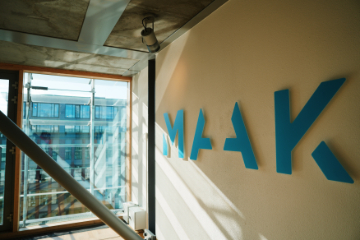
Product compliance in the Netherlands is important when you want to put products into use, or into circulation. There is a range of (EU) regulations, and with the advent of innovations, such as AI, it is also vital that you are aware of the applicable rules regarding your product. This can help you avoid a recall or sanctions from regulatory bodies. Be well-informed about this by our specialized product regulation lawyers in the Netherlands.
What is CE Marking?
CE marking, an abbreviation of Conformité Européene, is a crucial certification for products sold within the European Economic Area (EEA). It’s a testament to a product’s compliance with the EU safety, health, and environmental standards. Whether manufactured inside or outside the EEA, products need this mark to enter the EU market. But what does it take to secure this mark for your product? At MAAK Advocaten, we specialize in navigating these complex requirements.
Understanding EU Safety and Health Requirements
Navigating EU Directives and Harmonised Standards
The first step in obtaining CE marking involves identifying relevant EU directives and harmonized standards. Each product group might fall under multiple directives, like electrical products being subject to the Low Voltage and RoHS Directives. Understanding these directives is crucial for compliance.
Product Specific Requirements
Each product must meet the specific requirements set out in these directives. This implies a “presumption of conformity” when harmonized standards are used. However, alternative methods to demonstrate compliance are also viable. Attention to product descriptions and manuals is essential, especially regarding warnings and contact details.
Conformity Assessment and Testing
Independent Conformity Assessment: When and Why?
For certain products, especially those with high safety risks, an independent conformity assessment might be necessary. This assessment ensures that your product accurately meets the EU’s strict standards.
Testing for Conformity
As a manufacturer, it’s your responsibility to test your products against these standards. This involves a thorough risk assessment and adherence to essential requirements.
Preparing Technical Documentation
Technical documentation is a cornerstone of the CE marking process and product compliance in the Netherlands. It’s a detailed record proving your product’s compliance. This includes drawings, specifications, test reports, and inspection certificates. Additionally, if importing from outside the EEA, it’s vital to ensure that the foreign manufacturer can provide this documentation upon request.
Language and Content of Manuals
Manuals must be in the language of the product’s destination country, clearly instructing users, especially in hazardous scenarios. The demands for language and content can vary depending on the directive.
Finalizing CE Marking
Applying the CE Marking
The CE mark must be visible, legible, and permanent. If a notified body is involved, their identification number should also be present on the product.
EU Declaration of Conformity
Drawing up and signing the EU Declaration of Conformity is the final step when it comes to product compliance in the Netherlands. This document is a declaration of your product’s compliance and must be included in your technical documentation. Some product groups might also require proof of this declaration for distribution.
Frequently Asked Questions
Q: What is the significance of CE marking?
A: CE marking signifies that a product meets the EU’s safety, health, and environmental protection requirements, allowing it to be sold within the EEA.
Q: Is CE marking mandatory for all products?
A: CE marking is mandatory for specific product groups defined by the EU. Each product group has different requirements for compliance.
Q: How do I know if my product needs CE marking?
A: You must check the EU directives and standards applicable to your product group. The European Commission provides an overview of these regulations.
Q: What happens if a product is wrongly marked with CE?
A: Wrongly marking a product with CE is considered an unfair trading practice and is punishable by law.
At MAAK Advocaten, we understand the complexity of complying with EU regulations and the importance of CE marking for your products. Our expertise in European market requirements, EU legislation compliance, and navigating the CE marking process ensures that your products meet all necessary standards, paving the way for successful trading within the EU.









